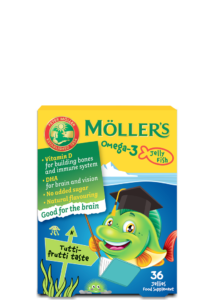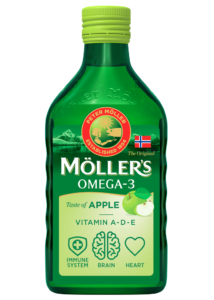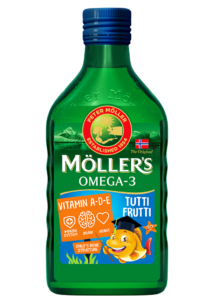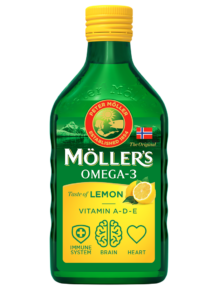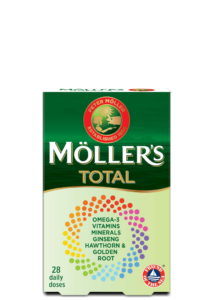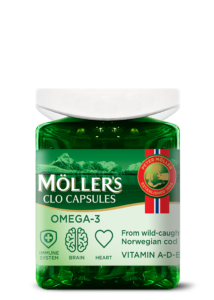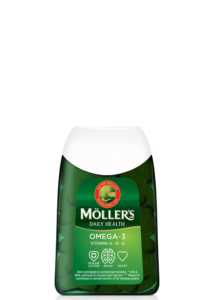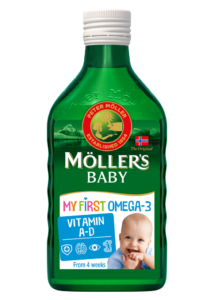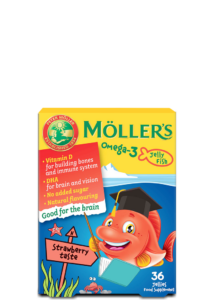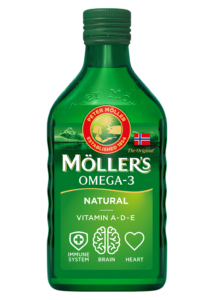To maintain a functional immune system, it’s important to get enough antioxidants. Several vitamins and minerals have antioxidant effects, including vitamin C and E. Read more about these vitamins and which foods you can eat to get enough antioxidants.
Home » Antioxidant vitamins E and C – immune system boosters

Antioxidants protect the body
Antioxidants are substances that, among other things, protects us from the free radicals that cause oxidation. This chemical process damages the membranes and DNA of the cells in our bodies.
Fresh fruit and berries are rich in antioxidants and so is coffee. Several different compounds have antioxidant effects, including vitamin C and E, selenium and zinc. Antioxidants are also produced naturally in the body.
In addition to antioxidants naturally occurring in a variety of foods, they can also be added to foods. If you eat the recommended daily intake of wholewheat bread and other whole grain products, you will get antioxidants through nutrients such as vitamin E and selenium. Eating about 750 g of fruit (including berries) and vegetables every day will ensure your body gets the antioxidant protection it needs.
Your vitamin E requirement increases with age
Vitamin E is a fat-soluble substance found in foods like plant oils, cereals, nuts, fish, cod liver oil, wheat germ, margarine, eggs, mangoes and avocadoes. This important antioxidant protects cell membranes from free oxygen radicals and keeps cell membranes soft.
Vitamin E is the common name for the substances tocopherol and tocotrienol, and these are found in eight different forms, all of which have antioxidant effects on the body. Alpha-tocopherol is the most biologically active and it is also the most common in animal tissue.
If you are ill or exposed to pollution or other environmental factors, your production of reactive oxygen compounds and free radicals could increase significantly, which in turn increases your body’s requirement for antioxidants.
Smokers or athletes are exposed to more free radicals than the average person and may need to increase their intake of antioxidants through dietary supplements, for example. Consult your GP to find out if you are at risk.
Your requirement for vitamin E also increases with age because vitamin E protects your body’s cells from damage caused by harmful by-products of metabolism, which increase with age.
Lack of vitamin E is rare nowadays, but some groups may be at risk – such as premature babies and people with poor intestinal uptake. The daily requirement for vitamin E is 8 mg for women, 10 mg for men and slightly higher for pregnant women and breastfeeding mothers – and lower for children.
It’s also worth noting that you can ingest too much vitamin E. Unlike vitamin C, which is water-soluble and thus excreted by the urine, vitamin E is fat-soluble. Excess is therefore stored in the liver and adipose tissue.
Vitamin C increases iron intake
Vitamin C, also known as ascorbic acid, contributes to the formation and maintenance of connective tissue in your body, as well as to strengthening the body’s immune system. The vitamin also increases your uptake of iron from vegetable sources by up to four times. While most animals produce vitamin C naturally in their bodies, humans are one of the few species that cannot produce this substance themselves.
In addition to being a super immune system booster, vitamin C is essential for maintaining the normal functioning of the nervous system. The vitamin is plentiful in citrus fruits, blackcurrants, turnips, potatoes, strawberries, peppers, broccoli, spinach and tomatoes.
Due to reduced uptake, smokers have almost twice the need for vitamin C compared to non-smokers. The recommended daily intake of vitamin C is 60 mg for adults, 70 mg for pregnant women, 90 mg for breastfeeding mothers and 30–50 mg for children. These requirements increase with age.
Overdoses of vitamin C are very rare because, as mentioned, excess of this water-soluble vitamin is eliminated in the urine.
What is good health?
Do you have a good lifestyle?
Lifestyle simply means the way in which you live. Health and lifestyle go hand in hand. You might feel you have a good lifestyle if you are physically active, eat healthily and generally experience a sense of wellbeing. Conversely, if you want good health you should also have a good lifestyle.
Physical activity is the major contributor to a good lifestyle, but diet, drugs, stress, sleep and social conditions are also play an important role. Being able to use the body properly to avoid injury also affects lifestyle. Physical activity can also prevent depression and help you to recover more quickly from mental illness, both of which obviously affect your lifestyle.
Diet can be a difficult topic for many. Perhaps you eat too much or too little or maybe you find it hard to know what foods to combine to have a balanced diet. It’s also important to eat food that contains important vitamins, minerals and dietary fibre, omega-3 and antioxidants. On top of all this, you also need to get enough energy, protein and the correct fatty acids. The requirement for these nutrients changes throughout your life. When you are older you also have different requirements than children and younger adults. Women also have different requirements than men. Pregnant and breastfeeding mothers also have special requirements.
When you get older, you lose muscle mass and your body requires less energy and therefore less food. You may lead a less active life than you did before, which is why you require less food. However, your need for minerals, vitamins and other nutrients remains the same. Of course, there are plenty of healthy and active older people, but when you reach 70 to 80 years of age, it’s easier to become ill, especially during flu season.
Some steps you can take to improve your lifestyle and health are to:
- eat a healthy and varied diet
- stay active
- watch your weight
- avoid too much alcohol and don’t smoke
- get enough sleep
- think positive
- practise good hygiene
What is good quality of life?
The World Health Organisation (WHO) defines quality of life as a state where the individual can realise their potential, cope with normal stressful situations, work in a rewarding and positive way, and be able to contribute to others and society.
Quality of life is a wide and somewhat diffuse concept that includes joy in, and a desire for, life. These are values that are rather felt than measured, which in turn are based on personal environment and choices. Quality of life doesn’t necessarily depend on being healthy or sick. It’s the moments between worries, sorrows, problems and ailments that matter. For example, if you have a chronic illness, a feeling of mastery can be important when talking about quality of life.
To sum up, quality of life is a combination of health, lifestyle, networks and social support. It’s about experiencing joy, meaning in life, satisfaction, security and a sense of belonging, as well as being able to use your strengths. It’s also about feeling interest in life, coping with everyday situations and a being committed to something or someone. If you have good quality of life, you will be able to cope better with the inevitable stressful situations in life.
Our products
-
Möller’s Omega-3 Jelly Fish Cola
-
Möller's Omega-3 Jelly Fish Tutti Frutti
-
Möller’s Cod Liver Oil Apple
-
Möller’s Cod Liver Oil Tutti Frutti
-
Möller’s Cod Liver Oil Lemon
-
Möller's Total
-
Möller's Cod liver oil capsules
-
Möller’s Daily Health
-
Möller's My First Omega-3
-
Möller’s Omega-3 Jelly Fish Strawberry
-
Möller’s Cod Liver Oil Natural
Learn more
Exercise program for the elderly
Healthy Aging Healthy Bones
Healthy diet during pregnancy
Brain Healthy Aging
Good health, lifestyle and quality of life – What does it all mean?
Cod Liver Oil Healthy Aging
Get inspiration on our Instagram

